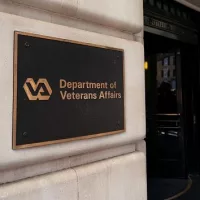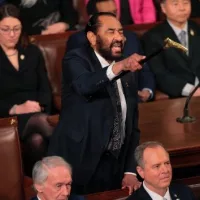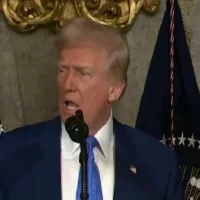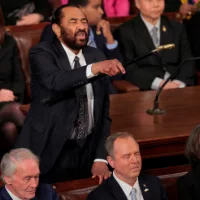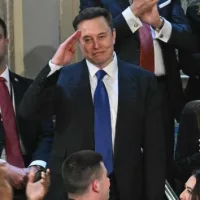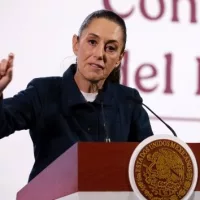
(MEXICO CITY) — U.S. tariffs imposed on Mexico have been “paused for a month,” Mexican President Claudia Sheinbaum said in a post on X Monday shortly after speaking to President Donald Trump. Trump confirmed the news shortly after in a social media post of his own.
Sheinbaum said Mexico has agreed to “reinforce” the Mexico-U.S. border with 10,000 National Guard troops “immediately.” She also said the U.S. had agreed to work to prevent high-powered weapons from being trafficked into Mexico.
Trump did not mention the U.S. working to prevent weapons from being trafficked into Mexico, but confirmed the 10,000 Mexican troops being deployed to the border “to stop the flow of fentanyl, and illegal migrants into our Country.”
The tariffs on Canada remain in place, however, Trump is expected to speak with Prime Minister Justin Trudeau at 3 p.m. ET.
Trump said Secretary of State Marco Rubio, Treasury Secretary Scott Bessent and Howard Lutnick, Trump’s yet-to-be-confirmed commerce secretary nominee, will negotiate with Mexican leaders in the next month to achieve a permanent deal.
Sheinbaum, who took over as Mexican president in October 2024, said Trump asked her how long she would like the tariffs on Mexico to be paused, and she responded “forever,” before Trump suggested they pause them for a month.
“He insisted on the commercial deficit that the U.S. has with Mexico. I told him it was not a deficit, that we are commercial partners, and it’s the best way to compete with China and other countries,” Sheinbaum said.
“I told him to collaborate,” Sheinbaum said. “He has agreed to the working group.”
Trump had told reporters he would speak on Monday with Sheinbaum and Trudeau prior to imposing import tariffs on their goods. The U.S. president was expected to sign executive orders on Tuesday putting in place 25% tariffs on goods from Mexico and Canada and 10% tariffs on those from China, according to the White House.
Sheinbaum in a video posted to social media on Sunday said her government was calling for “reason and law” among “individuals as well as among nations.”
‘This measure of 25% tariffs has effects for both countries but it has very serious effects for the U.S. economy,” she said, “because it will raise the costs of all the products that are exported from Mexico to the U.S., it will have a 25% higher cost.”
Trudeau responded to the planned tariffs on Saturday evening, announcing his country will implement 25% tariffs on 155 billion Canadian dollars, or about $107 billion, of U.S. goods. The prime minister said he has not talked to Trump since his inauguration.
Sheinbaum, who was elected in June, offered little detail on how her government’s “Plan B” would respond to the tariffs.
She instructed her economic secretary to “implement Plan B that we have been working on, which includes tariff and non-tariff measures in defense of Mexico’s interests,” she said in a statement written in Spanish and translated by ABC News.
She also sought to remind the White House that the current free trade agreements between the U.S. and Mexico have been in place for about three decades.
“The last free trade agreement was signed by President López Obrador and President Trump himself,” she said.
Trump on Sunday told reporters he was unconcerned about the potential impact of imposing tariffs on close trading partners, saying the American people would understand.
“We may have short term, some, a little pain, and people understand that, but, long term, the United States has been ripped off by virtually every country in the world,” he told reporters on Sunday, as he departed Air Force One at Maryland’s Joint Base Andrews.
He added, “We have deficits with almost every country, not every country, but almost. And we’re going to change it. It’s been unfair. That’s why we owe $36 trillion; we have deficits with everybody.”
Canada has been taking advantage of the U.S., Trump said, calling the relationship with the country a “one-way street.”
“They don’t allow our banks. Did you know that Canada does not allow banks to go in, if you think about it, that’s pretty amazing,” he said. “If we have a U.S. bank, they don’t allow them to go in.”
Trump added, “Canada has been very tough on oil, on energy. They don’t allow our farm products in. Essentially, they don’t allow a lot of things in, and we allow everything to come in. It’s been a one-way street.”
ABC News’ Matt Rivers, Max Zahn, Kelsey Walsh, Victoria Beaule and William Gretsky contributed to this report.
Copyright © 2025, ABC Audio. All rights reserved.






